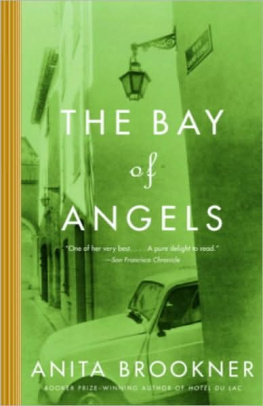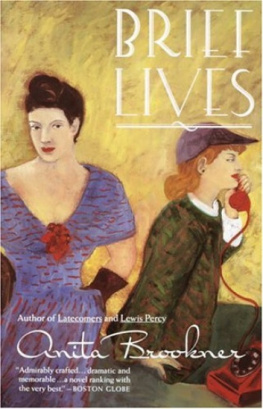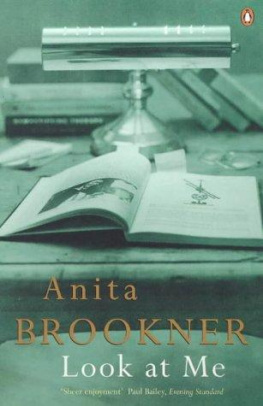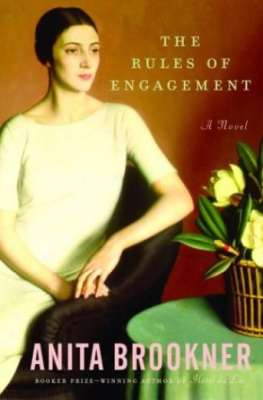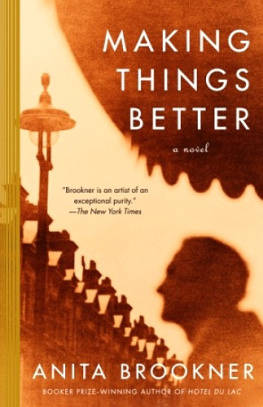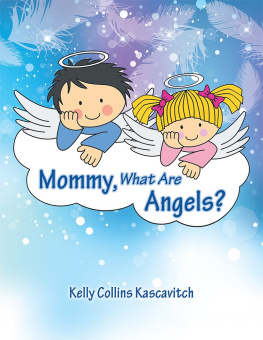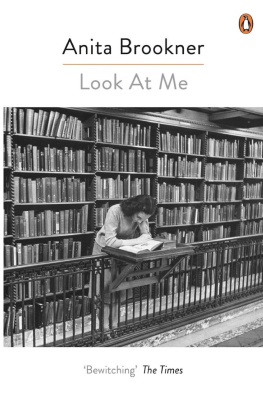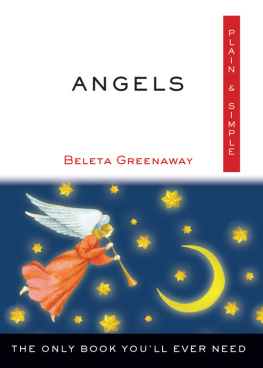Anita Brookner - The Bay of Angels
Here you can read online Anita Brookner - The Bay of Angels full text of the book (entire story) in english for free. Download pdf and epub, get meaning, cover and reviews about this ebook. year: 2002, publisher: Vintage, genre: Non-fiction. Description of the work, (preface) as well as reviews are available. Best literature library LitArk.com created for fans of good reading and offers a wide selection of genres:
Romance novel
Science fiction
Adventure
Detective
Science
History
Home and family
Prose
Art
Politics
Computer
Non-fiction
Religion
Business
Children
Humor
Choose a favorite category and find really read worthwhile books. Enjoy immersion in the world of imagination, feel the emotions of the characters or learn something new for yourself, make an fascinating discovery.
- Book:The Bay of Angels
- Author:
- Publisher:Vintage
- Genre:
- Year:2002
- Rating:3 / 5
- Favourites:Add to favourites
- Your mark:
- 60
- 1
- 2
- 3
- 4
- 5
The Bay of Angels: summary, description and annotation
We offer to read an annotation, description, summary or preface (depends on what the author of the book "The Bay of Angels" wrote himself). If you haven't found the necessary information about the book — write in the comments, we will try to find it.
The Bay of Angels — read online for free the complete book (whole text) full work
Below is the text of the book, divided by pages. System saving the place of the last page read, allows you to conveniently read the book "The Bay of Angels" online for free, without having to search again every time where you left off. Put a bookmark, and you can go to the page where you finished reading at any time.
Font size:
Interval:
Bookmark:
I read the Blue Fairy Book, the Yellow Fairy Book, and the stories of Hans Andersen, the Brothers Grimm, and Charles Perrault. None of this was groundwork for success in worldly terms, for I was led to think, and indeed was minded to think, of the redeeming situation or presence which would put to rights the hardships and dilemmas under which the characters, and I myself, had been labouring. More dangerously, it seemed to me that I need make no decisions on my own behalf, for destiny or fate would always have the matter in hand. Although I was too sensible, even as a child, to believe in a fairy godmother I accepted as part of natures plan that after a lifetime of sweeping the kitchen floor I would go to the ball, that the slipper would fit, and that I would marry the prince. Even the cruel ordeals undergone by the little match girl, or by Hansel and Gretel, would be reversed by that same principle of inevitable justice which oversaw all activities, which guided some even if it defeated others. I knew that some humans were favoured by whom? by the gods? (this evidence was undeniable) but I was willing to believe in the redeeming feature, the redeeming presence that would justify all of ones vain striving, would dispel ones disappointments, would in some mysterious way present one with a solution in which one would have no part, so that all one had to do was to wait, in a condition of sinless passivity, for the transformation that would surely take place.
This strikes me now as extremely dangerous, yet parts of this doctrine seemed overwhelmingly persuasive, principally because there were no stratagems to be undertaken. One had simply to exist, in a state of dreamy indirection, for the plot to work itself out. This was a moral obligation on the part of the plot: there would be no place for calculation, for scheming, for the sort of behaviour I was to observe in the few people we knew and which I found menacing. This philosophy, the philosophy of the fairy tale, had, I thought, created my mother, whose strange loneliness was surely only a prelude to some drastic change of fortune in which she need play no active part. I therefore accepted as normal that she should spend her days sitting and reading, engaging in minimal outdoor activity, for surely these were the virtuous prerequisites for vindication of some sort, for a triumph which would confound the sceptics, whom I was also able to recognize. She was a widow; I was hardly aware of the lack of a father, for I accepted that the road to validation was in essence one of solitude, and rather than engage in some productive occupation I preferred my mother to wait for the solution to her situation to be presented as none of her own volition.
I was thus aware of her unhappiness but able to bear it, with the help of the knowledge and indeed wisdom I had culled from my reading. As a child I did not perceive her longings, which had been cruelly cut short by my fathers premature death. Nor was I much interested in him, for he belonged to prehistory; I had no image of him other than as a face bending over me, and a photograph of a slim young man in an academic gown. Even the photograph conformed to my belief, for it showed someone who was not quite grown up, and therefore a fit companion for my mother who was not quite grown up either, a woman in embryo whose maturity was still far off. This made me comfortable with my own position, a fit descendant of a couple on the verge of existence who were merely undergoing some form of trial and who were surely approaching some beneficent outcome which would make even my fathers death assume acceptable proportions. He had died, and my mother had survived his death. Her unhappiness, I was confident, would be overturned, as any term of trial must be. It sometimes seemed to me that my fathers disappearance had merely prepared the way for a story very much like the ones I was so fond of reading. I was not then aware of the universal desire for a happy ending: I would not have understood such an abstraction. But I did know, or was convinced, that our story would have a happy ending, not realizing that there is no proper ending in human affections until time provides an ending to which all must submit.
The fact that we were of the same species (even my absent father contributed his very real silence to our own relative silence) merely emphasized the gulf that existed between ourselves and the harsher world outside our flat in Edith Grove. At least I assumed that it was harsher: how could it not be? When my mother walked soundlessly from one room to another, sat reading in the quiet afternoons, or carefully watered the plants on our little balcony, I was not aware of any lack or discrepancy in our lives, or not until some outward agency disrupted our slow peaceful rhythm. Our street was nearly silent, almost abandoned by the late morning: I could be trusted to make my own way to school. After I had done my homework in the evening I would take up my position at the window. I liked to watch the lights go on in other houses, as if preparing for a wayfarers return. My reading had conditioned me to think in terms of wayfarers, so that footsteps on the pavement gave me an agreeable sensation that the stories contained enough authenticity to justify the fact that I still read them.
No visit disturbed our evenings, nor did we wish for any. It was only at the weekends, when my mother said, Better put your books away. The girls are coming, that I resigned myself to a lesson in reality which would be instructive but largely unwelcome. I feared this lesson on my mothers behalf; I knew instinctively that her good manners were inadequate protection against the sentimental tactlessness of our visitors, who surely thought their presence something of a comfort to my mother and even to myself. They mean well, said my mother. They are good women. But we both knew that this was a lame excuse.
The girls , as opposed to the boys (their husbands, twin brothers in the hotel business), were as devoted as two sisters might have been, although they were not related. Rather it was my mother and I who were related to them, through my great-grandfather, who had married twice and had raised two separate families, one eventually resulting in my father and the other in the boys, who did not accompany their wives on these visits, although they might have done, on some vague grounds of consanguinity. What family feeling there was seemed to be in the gift of the girls, Millicent and Nancy, who faithfully kept up with my mother, whether through charity or genuine interest. It seemed to intrigue, even to excite them, that a woman of my mothers age could live without the presence of a man; they regarded her with pity, with anxiety, but also with curiosity, as if in her place they would have gone mad. They had little self-control, were obtuse, and kind, but also avid. Neither had children. Their days seemed, to hear their anecdotes, full of activity: shopping, maintenance, which was of a high order, visits, and then back home to the boys for dinner and an evening of bridge, at which they would complain incessantly, their beautiful complacency fracturing slightly to reveal a perhaps unguessed-at discontent.
Despite their physical perfection, which impressed and unselfishly delighted my mother, they were women whose very real innocence was but one feature of their glossy appearance, nurtured solemnly, and thus providing a fit basis for compliments. Drawn together by the accident of their marriages, they remained devoted to each other by virtue of an extraordinary similarity of temperament. They were sensuous, but not sensual, felt relieved that neither one of them was entirely satisfied by her husbands company, took refuge in material comfort and busy social arrangements. Marriage was no less than their right; it was also their alibi, protecting them from any form of censure, and may have been entered into precisely for that reason. My mother was well aware of this, as they may not have been; I deduced this from her kindness, which had something protective about it, as if they needed to be sheltered from certain realizations. I accepted them as a fact of nature. Their anxiety, unusual in very handsome women, was directed towards my mother, for whom they felt genuinely sorry. Their visits were mercy visits, in the sense that there are mercy killings, with the same admixture of motives.
Font size:
Interval:
Bookmark:
Similar books «The Bay of Angels»
Look at similar books to The Bay of Angels. We have selected literature similar in name and meaning in the hope of providing readers with more options to find new, interesting, not yet read works.
Discussion, reviews of the book The Bay of Angels and just readers' own opinions. Leave your comments, write what you think about the work, its meaning or the main characters. Specify what exactly you liked and what you didn't like, and why you think so.

